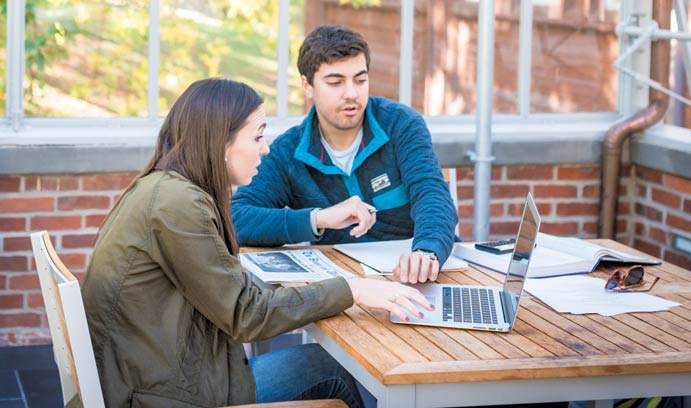The Mentor Collective

The new Mentor Collective at Lehigh will support students in transition to the academically rigorous, residential university experience by pairing them with trained upper-class students who can help guide them, provide support, link them to resources and offer advice. Students also will be able to use discussion guides and participate in goal-setting activities, available online, to foster meaningful conversations with their counterparts.
“This program will allow us to take a holistic approach to student success by harnessing both the power of technology and the power of human connection,” said George White, a longtime professor of educational leadership and the first managing director for student access and success at Lehigh.
The program is part of a broader goal to expand access to the university for groups that have been historically underrepresented. These efforts have been led by Donald Outing, Lehigh’s inaugural vice president for equity and community, since he came to Lehigh early in 2017.
“Equity is about ensuring that each of us gets what we need to succeed,” said Outing, in Lehigh’s 2017 annual report. “This includes access to opportunity, networks, resources and other support structures based on our needs and aspirations.”
Employed at more than 50 institutions across the country, the Mentor Collective program works by matching students with a mentor based on common interests, backgrounds and academics. Through regular monthly meetings, issues of concern can be discussed, or students can move on to mastery of essential professional skills that include time management and networking techniques, public speaking and developing a growth mindset.
The Mentoring Collective program is the latest in a number of initiatives to make a Lehigh education accessible to a broader spectrum of students. These include a university commitment to meet 100 percent of every student’s demonstrated financial need; participation in the American Talent Initiative, an alliance between the nation’s top-performing colleges and universities that aims to increase the number of high-achieving, low-income students who graduate from top-tier institutions; and a partnership with the Posse Foundation, which seeks to expand educational opportunities for talented inner-city high school students in the Bay Area of California.
Posted on:




